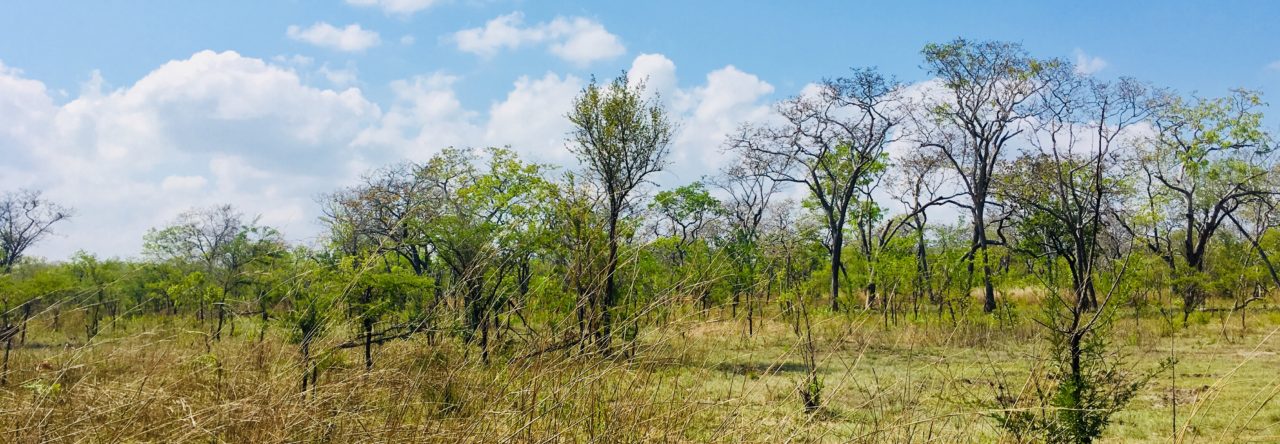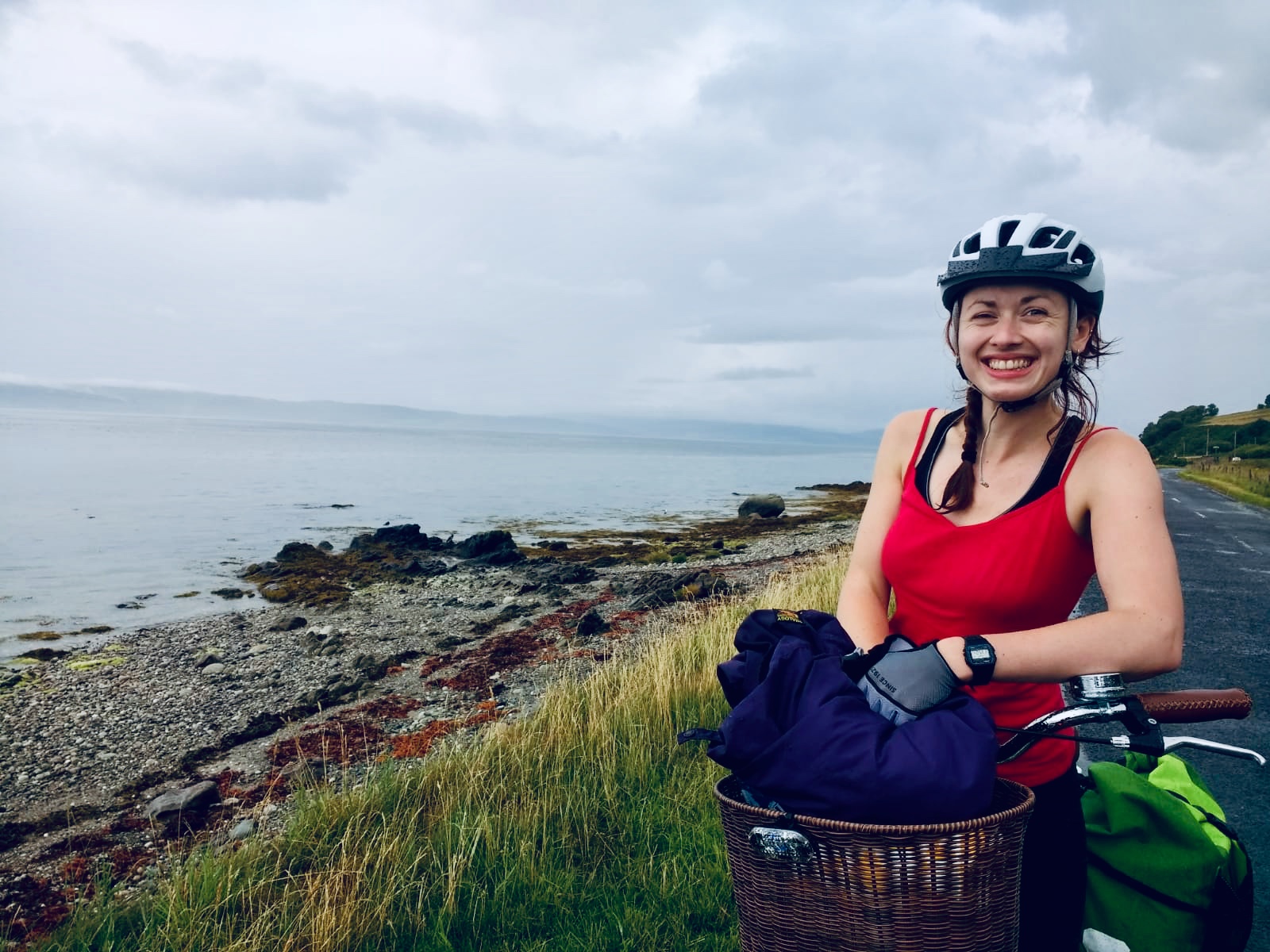It’s the end of my third year, so time for an annual round-up following the summaries of my first and second years. The year began with finishing my final field season at the end of 2019, which makes me one of the very lucky people who has been able to work from home during 2020, with my PhD continuing relatively smoothly onto analysis and writing.
Finishing fieldwork
I completed my final field season between September and November of 2019. After many ups and many downs, I was happy to finish with an amazing holiday with my partner, Jack, in Zanzibar and Arusha– parts of Tanzania I had not yet been able to explore – making Jack try all the foods I had been eating and see so many of the things I loved about Tanzania. I was also ecstatic to be able to return home with a complete dataset, that could no longer be rendered incomplete due to bad weather or a broken down vehicle.
The fieldwork itself was stressful, tiring, amazing and fun as usual. I spent most of my time doing forest inventory for my (affectionately nicknamed) Big Trees project – studying what has happened to the >40 cm diameter trees (the biggest carbon stores) in Kilwa’s miombo woodlands over the past 10 years. I also returned to my study villages from 2018, to report on my research progress, and ask a few follow-up questions. This field season for me was the perfect blend of being out in woodlands hugging trees (literally, with measuring tape in hand), chatting to the great people who live in Kilwa, and spending time with friends I had made the previous year. I was particularly sad to say goodbye to my friend and research partner Mercy, when it was time to go home. I’ve written about fieldwork elsewhere, if you’re interested in hearing a bit more about my experiences.
Following fieldwork, I spent a good few weeks typing up my data. I used paper data sheets for my forest inventory, which seemed like the right idea at the time but there are (I hear) way better ways to do it – ecologists and social scientists I know use Open Data Kit (ODK). Anyway, I didn’t have the tablet or time to set up ODK, and the lack of mains electricity and internet at my field site worried me. So, paper. And lots of typing when I got home. But actually, that was the kind of mindless job I needed after fieldwork and I could do it with Christmas music (and January / February music… whatever that is) on so I was happy.
Analysis and writing
Since finishing fieldwork and data entry, I’ve spent my time focusing on my social science data, which is all qualitative. I’ve been using NVivo12 to thematically code interviews using a hybrid approach, roughly following the practical system outlined by the sociologist Jon Swain here. The approach is ‘hybrid’ because is both deductive (top-down, theory-led) and inductive (bottom-up, data-led). For the deductive part, I set a priori ‘codes’ (thematic labels for each chunk of interview text that help you organise your data e.g. ‘Distance fire spreads’ or ‘Month fire is set’) based on my research questions aiming to characterize the fire regime, and I added new a posterior codes as new themes emerged during data analysis. It’s been a long process but really enjoyable to go back through interviews, remember the interesting and often hilarious things we talked about, and pull together some findings – which is really the point of it all.
A couple of weeks into my NVivo analysis I realised that I needed to start writing. I thought it would help me maintain concentration if I wasn’t coding all day every day, and I also find that writing is an important part of the analysis process for me. It helps me to focus my ideas, gets me reading other research, and those things combined often make me go “oooh, that’s interesting, I need to go back to my data and find out more about that!” So tandem writing-analysis works well for me. I started by making my ‘Thesis’ Word document (which, elsewhere, I argue is something that you should do during the first year of your PhD), which gave me a structure and showed me all the chapter headings I need to fill. I spent lots of time going back through notes I have made throughout my PhD, moving some chunks of text and references into appropriate sections of ‘Thesis’, and felt reassured that I do know some stuff and have some things to write about. And I started really focusing on one empirical chapter on intentions underlying the fire regime in Kilwa (in a separate document – Thesis was too long) again, pulling together relevant notes, outputs from my analysis, and writing. Now at the end of the year, the bulk of my social science analysis is done, and one chapter is written. Only two more to go, including dealing with all those Big Trees…
You haven’t done much work this year, have you?
If it sounds like I’ve had a quiet year, it’s because I spent half of it on a break from my PhD doing some work for Tree Aid, conducting a literature review and doing some ecological modelling. It’s been super nice to contribute to an amazing organisation like Tree Aid, and a fantastic opportunity to learn more and expand my skillset. I’ll plan to write more about internships and PhD interruptions another time, but I think that they’re generally a great thing to do and often there’s lots of flexibility to do them during your PhD. There’s also often extra time and funding available for this, especially if you’re part of a Doctoral Training Partnership. I don’t know many people on a student stipend who could afford to do an internship in the middle of their PhD for free, so this is worth looking out for.
*******
I’m going to finish with some tips for writing, which I have found very useful during the past year:
- Stephen King’s On Writing. It’s great, and I think the guidance is useful for scientists as well as novelists because Stephen is all about the story, not the flowery language. As we should be too.
- George Orwell’s Politics and the English Language. As above – it’s for scientists too.
- The ‘Uneven U’ by Gavin Lamb.
- Writing Backwards by William E Magnusson.
- The Annotated Nature Abstract.

